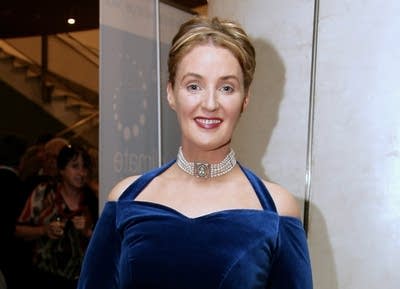Last month finally saw the release of Natalie Portman's western Jane Got a Gun after years of highly-publicized production drama and postponed release dates. Along with the film's release comes a new score by world-class composer Lisa Gerrard and her collaborator Marcello De Francisci. Neither composer could be easily pigeonholed in terms of style, and their take on the Western genre is one of the most valuable and interesting to emerge in the last few years. Its release provides a new opportunity for audiences to discover Gerrard, one of the most interesting composers working in film music today.
Known for an incredible voice that spans from contralto to dramatic mezzo-soprano, Gerrard is also an extensively talented composer whose work is continuously evolving. "Music is a place to take refuge," she says on her website. "It's a sanctuary from mediocrity and boredom. It's innocent and it's a place you can lose yourself in thoughts, memories, and intricacies."
Her work on smaller pictures like Whale Rider brought a rich quality to minimalism and ambience, while larger blockbuster films often bring her in to craft the conscience and soul of the music.
2000 Best Picture winner Gladiator introduced her talents to a vast audience (her voice is the sound of "Elysium"), winning her a Golden Globe for working with Hans Zimmer to develop a score and songs that balanced Zimmer's pounding battle music with more subtle elements that helped develop the film's characters.
However, her musical legacy goes back much further — to Dead Can Dance, a band she founded with collaborator Brendan Perry in 1981. Their music was described by Ian McFarlane, an Australian music historian, as "soundscapes of mesmerizing grandeur and solemn beauty; African polyrhythms, Gaelic folk, Gregorian chant, Middle Eastern mantras and art rock."
As Dead Can Dance developed, so did Gerrard's artistic need to go further. She worked on solo records and found additional collaborators in composers like Patrick Cassidy and Pieter Bourke — who would become a major collaborator as Gerrard began working in cinema for the likes of Michael Mann and the Scott Brothers (Tony and Ridley). In the mid-nineties and 2000s she shaped the sound of work, collaborating with big-name composers they worked with — like Zimmer, and Harry Gregson-Williams. Her voice and stylings are integral to their work over the last 20 years — either directly or by inspiration. It's safe to say that many great moments in recent film music would never have happened without her.
Never settled, and difficult to pin down as an artist, Girrard sings in a language of her own making: "in the language of the Heart," she has said, according to IMDB. "It's an invented language that I've had for a very long time. I believe I started singing in it when I was about 12. Roughly that time. And I believed that I was speaking to God when I sang in that language."
Critics often speak of stagnancy in music, and the shear lack of originality, yet with creative composers like Lisa Gerrard there is hope.
Garrett Tiedemann is a writer, filmmaker, and composer who owns the multimedia lab CyNar Pictures and its record label American Residue Records.
Love the music?
Show your support by making a gift to YourClassical.
Each day, we’re here for you with thoughtful streams that set the tone for your day – not to mention the stories and programs that inspire you to new discovery and help you explore the music you love.
YourClassical is available for free, because we are listener-supported public media. Take a moment to make your gift today.


